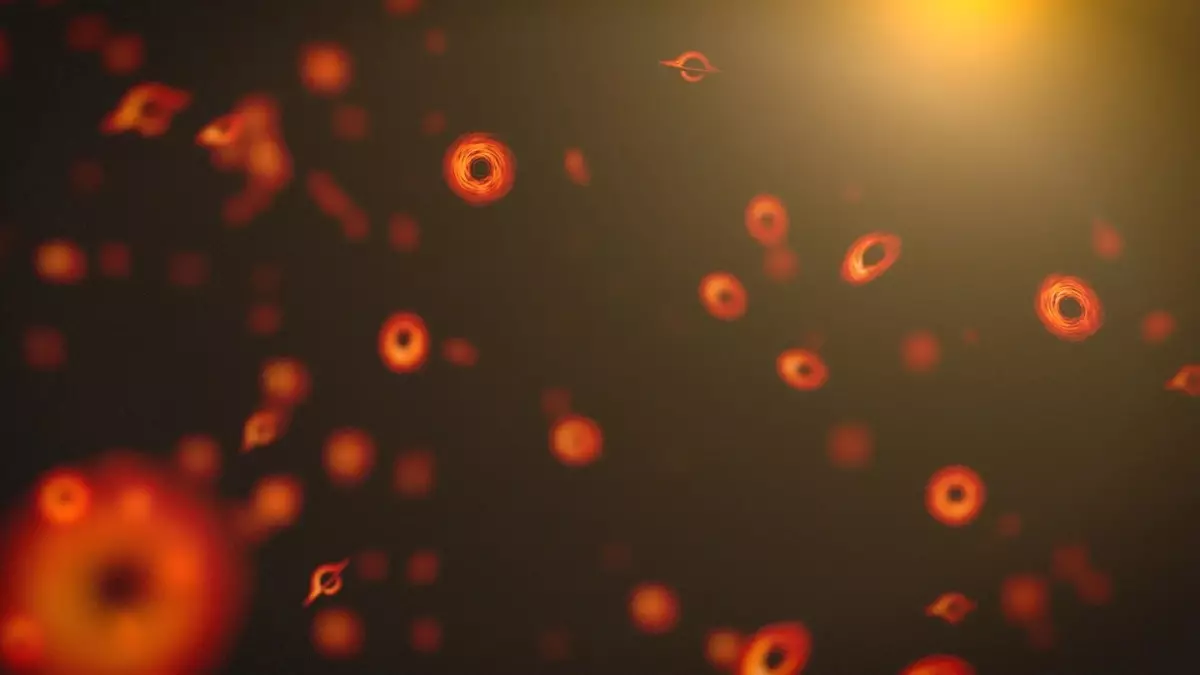Recent scientific investigations, as detailed in studies published in *Physical Review D*, have ignited a thought-provoking discourse regarding the presence of microscopic black holes within our solar system. These structures, termed primordial black holes, are conjectured to have formed during the infancy of the universe. They possess intriguing characteristics, such as having masses akin to asteroids yet dimensions that rival those of a hydrogen atom. In light of these fascinating properties, scientists are examining whether these primordial entities might shed light on the enigmatic nature of dark matter, a substance believed to constitute a staggering 85 percent of the universe’s mass.
The inception of primordial black holes is hypothesized to stem from regions of extreme density in the early universe that succumbed to their gravitational pull. This is a departure from conventional black holes that form from the catastrophic death of massive stars, which are notably larger and demonstrate slower velocities. The estimated speed of these primordial black holes could reach around 200 kilometers per second, significantly impacting the gravitational dynamics within our solar system.
Understanding the gravitational influence these black holes may exert on planetary orbits is a central focus of ongoing research. According to Dr. Sarah Geller, a cosmologist at the University of California, Santa Cruz, any irregularities or “wobbles” in a planet’s orbit could potentially be attributable to the gravitational effects of a nearby primordial black hole. To validate this hypothesis, Dr. Geller’s research team is set to embark on a comprehensive modeling project of the solar system.
In a parallel effort, Dr. Sébastien Clesse from Université Libre de Bruxelles and Dr. Bruno Bertrand from the Royal Observatory of Belgium have advanced an intriguing methodology for detecting these elusive black holes through the observation of satellite behaviors. They propose that the subtle gravitational interactions initiated by small black holes could manifest as variations in satellite altitudes. Existing space probes may, therefore, offer invaluable data to identify such disturbances, particularly when targeting smaller black holes.
However, caution is warranted in this ambitious approach. Dr. Andreas Burkert from Ludwig-Maximilians-University Munich has raised valid concerns regarding the identification of these primordial black holes. He notes that external factors, such as solar winds or interactions with asteroids, could easily misrepresent the gravitational signatures attributed to black holes.
While skepticism exists, the investigation into primordial black holes presents promising avenues for unraveling the mysteries of not only dark matter but also the very fabric of the universe itself. The potential identification of these miniature black holes could lead to newfound understandings and significant advancements in cosmology. As the research progresses, the scientific community remains poised, eager to unearth revelations that could redefine our comprehension of cosmic structures and dynamics.


Leave a Reply